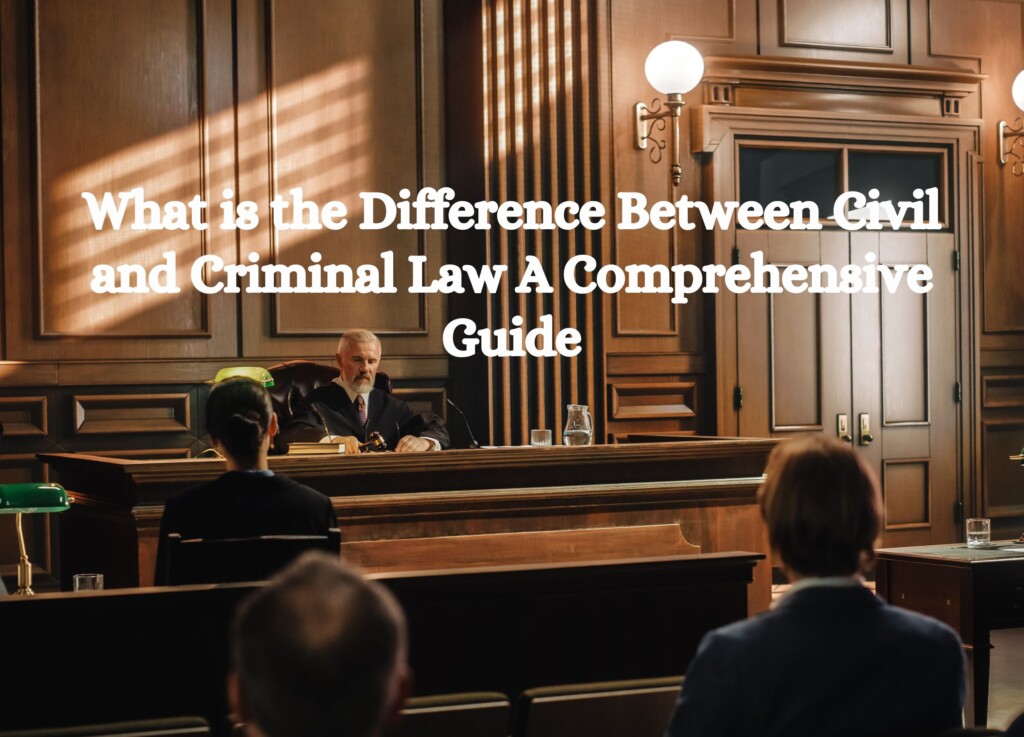The legal system is a complex web of rules, regulations, and procedures. One of the most fundamental distinctions within this system is the difference between civil and criminal law. While both are essential for maintaining justice, they serve different purposes and come with their own set of rules and consequences.

The Basics of Civil Law
Civil law deals with disputes between individuals or organizations. These cases usually involve contracts, property, and family matters. The aim is to resolve the dispute and, if necessary, provide compensation to the injured party. For more insights into civil law, you can read our article on Navigating Divorce Mediation in Long Island.
The Basics of Criminal Law
Criminal law, on the other hand, involves offenses against the state or society as a whole. This includes crimes like theft, assault, and murder. The objective is to punish the offender and deter future crimes. To understand the complexities of criminal law, check out our article on The Legal Drinking Age in Italy and Responsible Alcohol Consumption.
Key Differences
- Burden of Proof: In civil law, the burden of proof is usually on the plaintiff and is less stringent compared to criminal law, where the prosecution must prove the defendant’s guilt beyond a reasonable doubt.
- Legal Representation: In criminal cases, defendants have the right to an attorney, and one will be provided if they can’t afford it. This is not always the case in civil lawsuits.
- Consequences: Criminal law can result in imprisonment, whereas civil law usually results in monetary compensation or orders to do or not do something.
Why It Matters
Understanding the difference between civil and criminal law is crucial for anyone who finds themselves involved in a legal issue. Whether you’re going through a divorce or facing criminal charges, knowing the basics can help you navigate the legal system more effectively. For more on this, you can read The Cost of Divorce: Financial Implications and a Path to Reconciliation.
Legal Procedures
The procedures in civil and criminal cases also differ significantly. In civil cases, the process usually starts with a complaint filed by the plaintiff, followed by a series of hearings and negotiations. In criminal cases, the process often begins with an arrest, followed by a formal charge, preliminary hearing, and possibly a trial. For a deeper dive into legal procedures, you might find our article on Online Divorce in New York: Navigating the Digital Path and Considering Reconciliation quite enlightening.
Role of the Jury
In both civil and criminal cases, a jury may be involved, but their role can differ. In criminal cases, the jury decides on the guilt or innocence of the defendant. In civil cases, the jury may determine liability and the amount of damages. Understanding the role of the jury is crucial, and you can learn more about it in our article on Navigating Divorce in New Jersey: The Role of a Skilled Divorce Lawyer.
Appeals Process
Both civil and criminal cases have an appeals process, but the grounds for appeal can vary. In civil cases, either party can appeal the decision, while in criminal cases, generally only the defendant has this right. For more on the appeals process, check out our article on The Importance of a Free Consultation with a Divorce Attorney.
Final Thoughts
Understanding the nuances between civil and criminal law is not just for legal professionals; it’s essential knowledge for anyone. Knowing these differences can help you make informed decisions should you ever find yourself entangled in legal matters. For more legal insights, don’t forget to visit our Legal Know It All website.
As an Amazon Associate we earn from qualifying purchases through some links in our articles.




